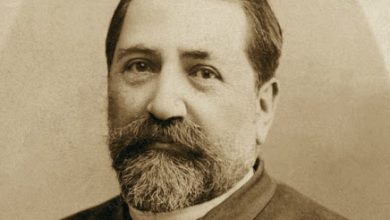
| SHAKESPEARE AND THE ELIZABETHAN ACTING TROUPES WHO VISITED STRATFORD Stratford was often visited by travelling troupes of professional actors. Such acting troupes had patrons who backed their initial expenses. Some troupes of actors consisted of rogues and vagabonds and these became such a nuisance that regulations were imposed and licenses were granted to the aristocracy for the maintenance of troupes of players, who might at any time be required to show their credentials. Initially it was also a rule that these performers should appear only in the halls of their patrons but this requirement was soon disregarded. Another important reason for the regulation of plays was that playwrights used the stage as a forum to express their own views on religion and politics. Plays were required to be registered prior to publication allowing a form of censorship and the means to suppress too much freedom of thought and criticism of the crown and public affairsThe troupes then required venue licenses to put on their plays and, in Stratford, these were obtained from Stratford Guild Hall via the Bailiff would have been responsible for this task. In 1568 William Shakespeare’s father, John, was elected Bailiff or Mayor of Stratford! So William Shakespeare’s father would most certainly have met the actors in the various troupes which visited Stratford. And William would have come into close contact with the acting fraternity from a very young age. The following troupes of actors obtained licenses to play in the town. 1572 Earl of Leicester’s acting troupe play Stratford 1574 Warwick’s men acting troupe play Stratford 1574 Warwick’s men acting troupe play Stratford 1578 Lord Strange’s men acting troupe play Stratford 1578 Essex’s men acting troupe play Stratford 1580 Berkeley’s men acting troupe play Stratford 1581 Worcester’s men acting troupe play Stratford 1582 Berkeley’s men acting troupe play Stratford There was no such thing as a theatre in England until 1576 when James Burbage built The first public playhouse in Shoreditch, London simply called ‘ Theatre ‘. Up until this time the courtyards of inns were most commonly used to show plays together with some guildhalls. In the event that such buildings were not available then the plays were conducted on common land. One of the actors who was known to play in the travelling acting troupes was the comedian and dancer Will Kempe. It is likely that William Shakespeare knew Will Kempe and possible that Shakespeare went to London with a troupe of actors when he left Stratford between 1589 and 1592. The rest, as they say, is history .Earl of Leicester’s Men Acting Troupe The Earl of Leicester’s Men were the earliest organized Elizabethan acting company. Formed in 1572 from members of the Earl of Leicester’s household, the troupe performed at court the following year. The Earl of Leicester was a favourite of Queen Elizabeth and the company was granted a license by royal patent. In 1576 James Burbage, a member of the troupe, built Theatre to stage their productions. With the death of the Earl of Leicester in 1588, the troupe merged with Lord Strange’s Men. Lord Strange’s Men Acting Troupe The troupe of Lord Strange was made up from members of the household of Lord Strange, they toured the provinces before appearing at court in 1582. From 1588 to 1594 they were associated with the Admiral’s Men. The troupe performed at Theatre and at the Rose Theatre, where they are believed to have staged several of Shakespeare’s plays. Upon the death of Lord Strange in 1594, the group left London to perform in the provinces. Some members, however, joined the Chamberlain’s Men.Chamberlain’s Men leading to the King’s menChamberlain’s Men were the most important company of players in Elizabethan and Jacobean England. Between 1564 and 1567 the troupe was initially known as known as Hunsdon’s Men, whose patron was Henry Carey, 1st Lord Hunsdon. Hunsdon took office as Lord Chamberlain in 1585, and another company (the Lord Chamberlain’s Men) under his patronage is traceable to 1590. After their patron’s death in 1596, the company came under the protection of his son, George Carey, 2nd Lord Hunsdon. Once more it was known as Hunsdon’s Men, until their new patron himself took office as Lord Chamberlain in 1597. It was again known as the Lord Chamberlain’s Men, until the accession of James I in |
March 1603, when, by letters patent, it was taken under royal patronage and henceforth known as the King’s Men. Admiral’s Men Acting Troupe Between 1576 and 1579 they were known as Lord Howard’s Men after their patron Charles Howard, 1st Earl of Nottingham, 2nd Baron Howard of Effingham. In 1585, when Lord Howard became England’s Lord High Admiral, the company changed its name to the Admiral’s Men. The chief actor of the Admiral’s Men was Edward Alleyn; their manager and effectively their employer until his death in 1616 was Philip Henslowe whose diary, covering the years 1592 to 1603, documents the Elizabethan theatre and its organization. Once considered the finest Elizabethan theatrical company, the Admiral’s Men began to decline with the rise of the Chamberlain’s Men and the subsequent retirement of Alleyn in 1603. By 1631 the company had disbanded. |





